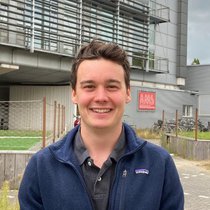| Websites: |
Titus leads the MIT Senseable City Amsterdam (SCA) research lab. Cities play a vital role in the fight to limit global warming to 1.5 ºC. This is why AMS Institute and MIT announced a joint research initiative to help cities - Amsterdam specifically - transition to climate neutrality. Titus’s role is to lead the team and help develop science-based methods and tools to speed up and enable this transition by bringing together researchers, industries, and cities.
The Lab consists of an interdisciplinary group of MIT researchers, who work on challenges from the City of Amsterdam. By combining disciplines and leverages digital technologies and real-time data, SCA aims to enable a climate-neutral Amsterdam. Currently, we have two research tracks, real-time monitoring and circular material flows. For real-time monitoring, we focus on greenhouse gas emissions, air pollutants, and urban heat. Within the circular material flows track, we investigate how and at what scale cities, specifically Amsterdam, can become circular.
Some recent projects from SCA include Timber Loops (https://senseable.mit.edu/timber-loops/), developing a radically affordable urban sensor for heat and air pollution, and creating a large scale computer vision model for real-time traffic CO2 emissions prediction based on crowd sourced video footage.
In addition to leading Senseable City Amsterdam, Titus has a research position at TU Delft (CiTG, Transport and Planning), a research fellow appointment within AMS Institute, and is on the board of the foundation Young Urban Engineers.
“Cities are the epicenter of climate impacts and GHG emissions - my role at MIT and AMS Institute is to leverage the digital layer of cities to give them a fighting chance”
Titus Venverloo
Lead, MIT Senseable City Lab Amsterdam & Program Developer
